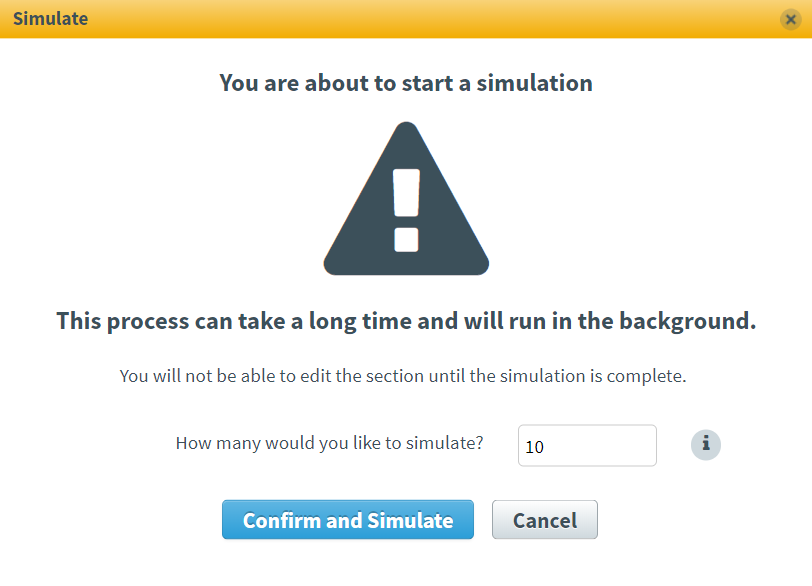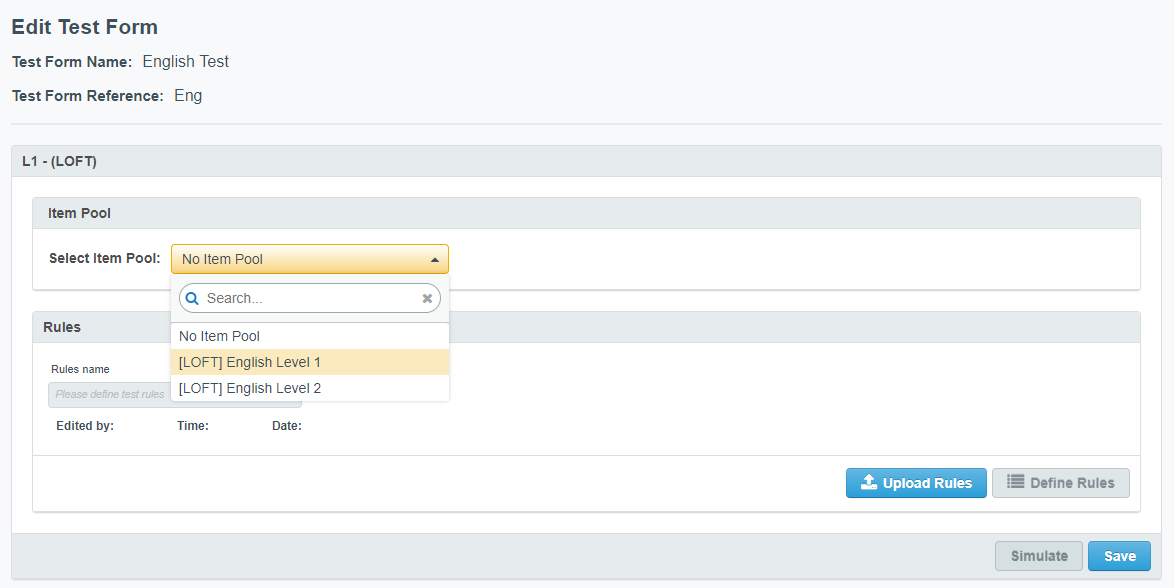Simulating a LOFT test form
Linear-on-the-fly testing (LOFT) lets you create a unique test for each candidate using items based on domain and psychometric data. This style of testing ensures item exposure is optimised across your bank of items, meaning that individual items are never overexposed or underutilised.
You can simulate the generation of items to check that the item pool and rules behave as expected for a LOFT section.

This article explains how to simulate a LOFT section.
In this article
1. Go to the LOFT/Adaptive screen
To view the LOFT/Adaptive screen, go to Test Creation > LOFT/Adaptive.

2. Select your test form
To view the Edit Test Form screen, choose a test form in the LOFT/Adaptive grid and select Edit Test Form.

The Edit Test Form screen displays information about the chosen test form, including the Test Form Name, Test Form Reference, and any external optimiser sections.

3. Start the simulation
Select Simulate in the Edit Test Form screen to generate items in a LOFT section.

4. Define your simulation
Specify how many times you want the simulation to run, up to a maximum of 5000.

Select Confirm and Simulate to start the simulation. You cannot edit the item pool or rules for the section while the simulation is in progress.
Select Stop Simulation to cancel the simulation.

5. Complete simulation
After the simulation is complete, Surpass notifies you if the simulation succeeded or failed.

You are informed if the simulation is not successful. If the simulation is partially successful, you can download a CSV file that details which constraints have not been met. If No tests met the constraints appears, you must redefine the constraints in your rules file.
Select Download to view a CSV file containing the ID of the items generated during the simulation. This file also captures the time taken for the simulation, which lets you check how long it takes to generate a LOFT section.
Select Close to exit the Edit Test Form screen.
Further reading
To learn more about LOFT/Adaptive tests, read the following articles:
